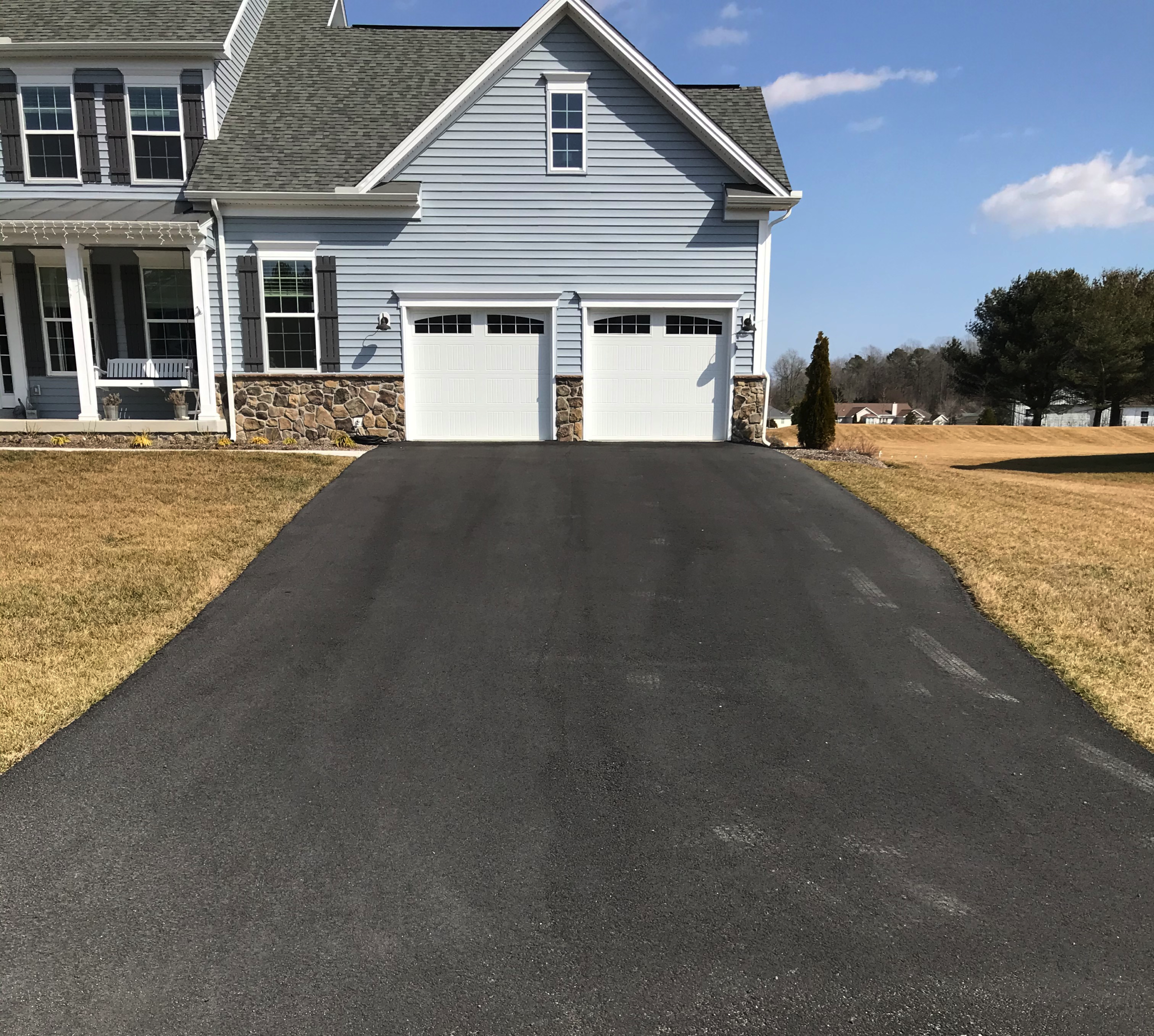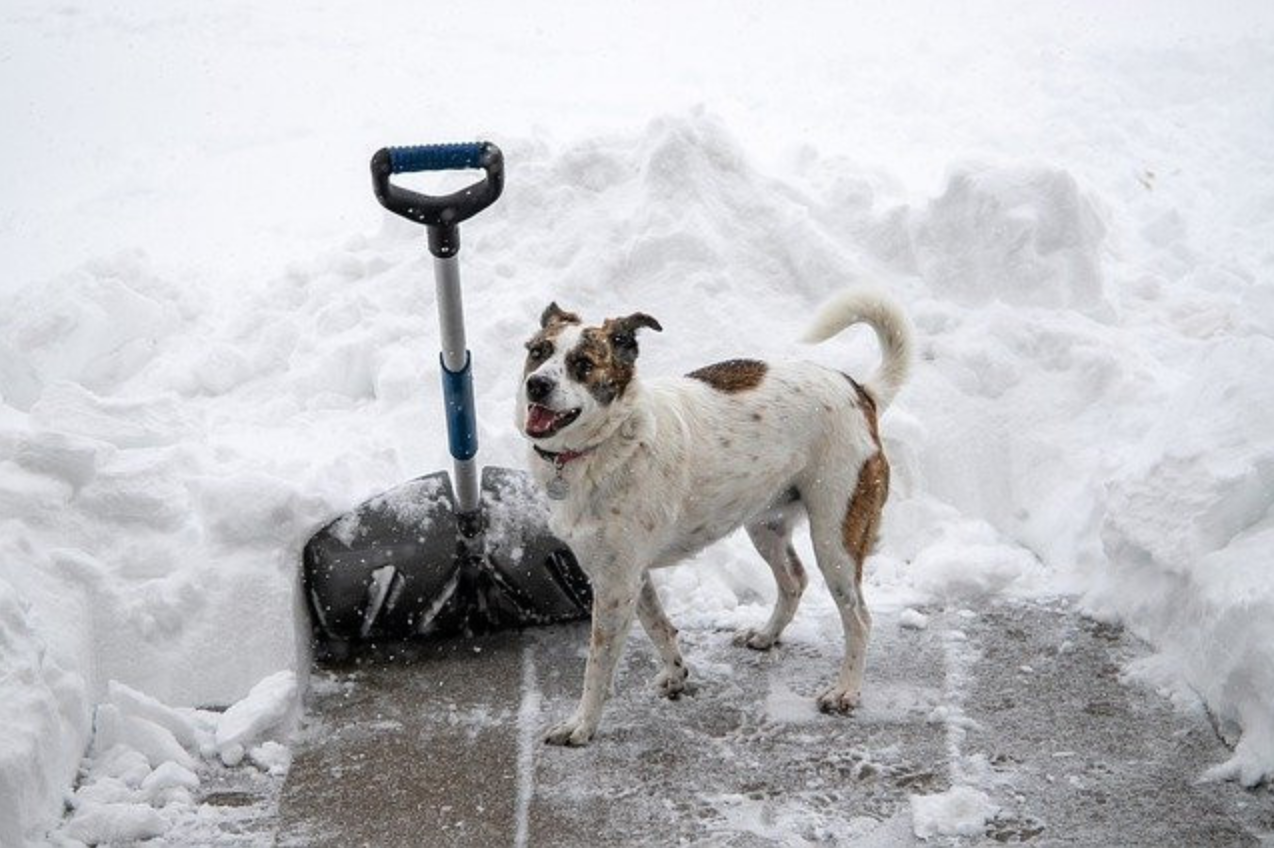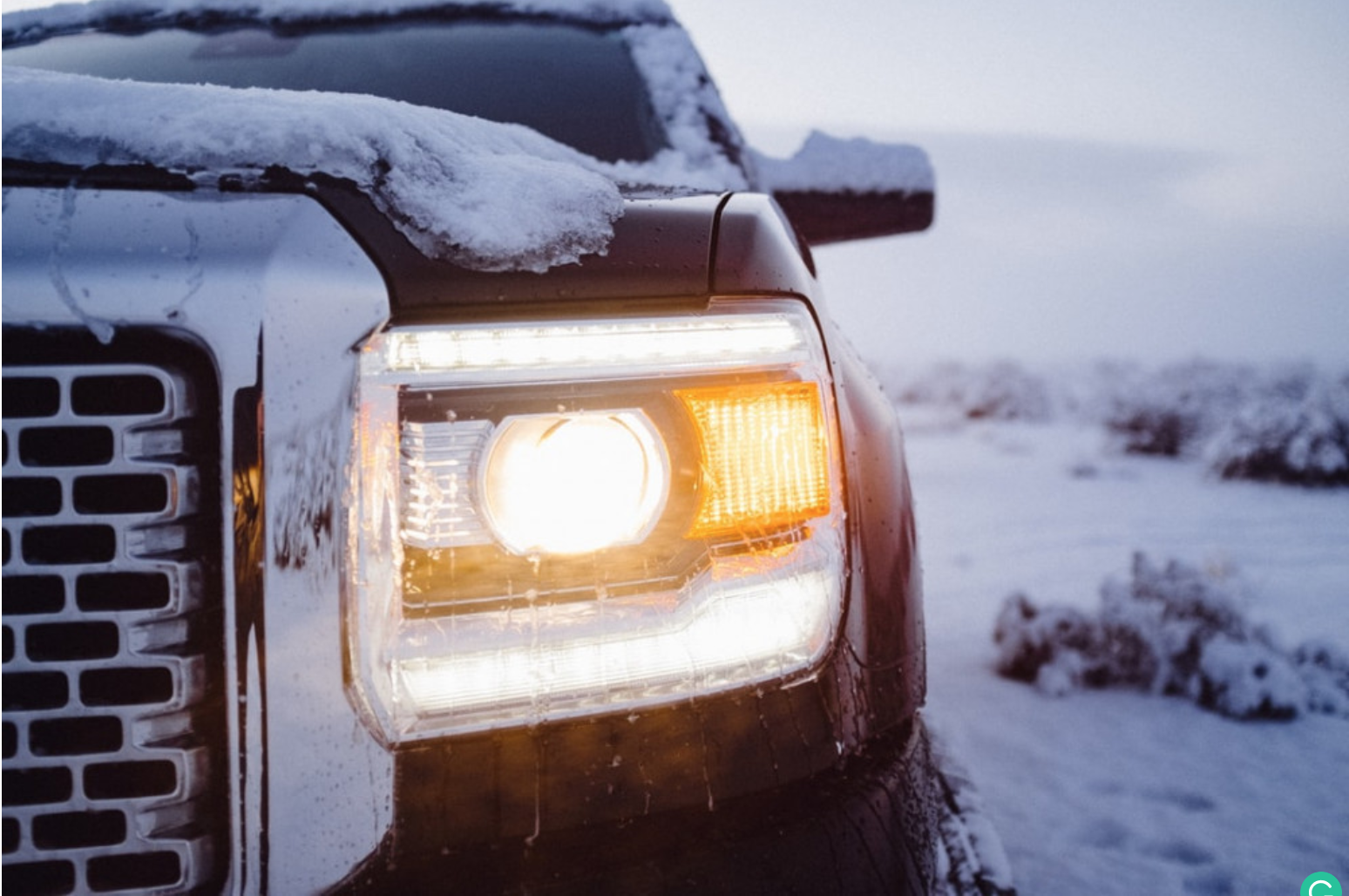You may have heard the saying, “ask 5 economists, and you’ll get five different answers.” Surprisingly, the same happens when you ask trade experts, is sealing an asphalt driveway necessary?
We have an asphalt driveway in our new home in Lewes, Delaware, and wanted to know how to take care of it. When I was researching whether to seal or not seal the driveway, I ended up with more questions than answers. But I am stubborn, and after enough thinking, I came out with what I believe is the best answer for this question.
There is no convincing evidence showing that sealing a well-built asphalt driveway will extend the lifespan of the driveway.
Since experts disagree about this topic, I decided to first start by educating myself about how asphalt driveways should be built. I found a very good video that will help highlight facts about asphalt driveways.
How Should Asphalt Driveways Be Installed?
I am a practical guy and just want to know what I need to do to get the most out of my new asphalt driveway. I find it odd that we just build the house and already hear neighbors talking about sealing the driveways. Based on my research, well-built asphalt driveways typically last up to 20 years; some even longer.
Before deciding whether sealing an asphalt driveway is necessary, we need to know how to correctly install asphalt driveways. The video below does a good job of explaining the fundamentals we need to understand.
Key Elements of an Asphalt Driveway Installation
These are important takeaways from the video:
- Proper subgrade preparation is extremely important. The better the subgrade preparation the better the driveway. An important aspect of the grading process is drainage planning.
- Drainage planning. The two main goals of the drainage planning are: (1) The water runs away from the garage or away from the house to avoid flooding and (2) the water runs off of the asphalt to avoid water pooling and sitting on the surface of the asphalt, which may cause pavement failures and premature deterioration. And of course, you should not install the driveway when it’s raining.
- You should remove material like rocks or gravel prior to grading and paving the driveway. A good rule of thumb is, you should not pave anything that moves beneath our feet and should be removed from the driveway prior to installing the asphalt.
- Strong base material like road base recycled, concrete or limestone should be installed prior to installing the new hot asphalt. This is essential to help stabilize the subgrade and make the driveway much stronger and much more durable.
- Once the grading is complete the subgrade should then be compacted with the rollers before installing the asphalt.
- Next, an herbicide should be put down to minimize vegetation growth as weeds growing up through the asphalt can cause important damage.
- Finally, the asphalt should be installed using an asphalt paving machine when possible to provide a consistent average depth of asphalt throughout the driveway.
Now that we understand how to install an asphalt driveway properly, we have a good base to judge the arguments in favor of and against sealing your asphalt driveway. Let’s compare the main arguments side by side.
Arguments For and Against Sealing Asphalt Driveways
These are some of the main arguments that keeps experts divided. My main concerned with the arguments pro sealing is that when you build something right you shouldn’t have to think of too much expensive maintenance. More on prices below.
| ARGUMENTS FOR SEALING | ARGUMENTS AGAINST SEALING |
| Protects the Driveway From Water Penetration-A seal coat forms a layer over your raw asphalt surface, preventing the water and other chemicals from penetrating deep into the asphalt. | The only way water can penetrate is if the asphalt has cracks-A well-built asphalt driveway should not have cracks after a few years. If cracks appear in due time, it is best to use a strong epoxy to fill the cracks. |
| Ultraviolet (UV) Protection – The seal coat provides protection against harmful UV radiation. | The stones and sand of your driveway are not affected by UV radiation -UV rays will consistently damage the thin seal coat. As this thin layer deteriorates, you will feel forced to add another layer after a couple of years. |
| Appearance – A seal coat gives an overall cleaner and sleek look to your driveway. | The seal coat will deteriorate fast – It will soon look worse than before you applied the seal coat. Then you will have to apply another one to conceal the prior one. |
A Quick Look at Prices
The Seal Coat Market was valued at USD 1.3 billion in 2020 and of course, North America dominated the market across the globe. I am not trying to be cynical here but there are many “experts” who want to convince you that seal coating your driveway every 3 years is a must.
Let’s take a look at your expected cost if you follow the “recommended” asphalt driveway maintenance.
| Average Cost of Building a new Asphalt Driveway (Expected every 20 years) | $5,800 |
| Average Cost of Sealing Your Asphalt Driveway (Recommended every 3 years) | $468 |
| Total Cost After 20 Years ($5,800 + $3,276 [7x$468]) | $9,076 |
I think it is unlikely that your driveway will last longer than 20 years if you apply sealing every year. You will be paying about $3,276 more in a 20 year period if you seal your asphalt driveway every 3 years.
This is a contested topic, so ultimately the decision is up to you. Unless the HOA we live in force us to do it, I am not planning to seal my asphalt driveway.
Please let me know in the comments below what you think about it and what you are planning on doing or have done already.
Related Posts:




My husband agrees with you. We will not be sealing our driveway which will be laid tomorrow. You have reinforced what he believes to be a waste of time and money. Thanks for putting the pros and cons together in this article.
Yes, several people in our community have paid to get their driveway sealed only after two years of being installed. I don’t think it makes sense. Thank you for stopping by!
I can tell your readers that having a good base is the answer to long lasting asphalt driveways. My drive is now 23 years old and was placed on an 8 foot deep mix of crushed gravel, recycled asphalt, left over concrete mix, and layered until the 8 foot height. The laneway has gone grey in colour and looks like it did 23 years ago. It is 120 feet long and a double width that slopes in from the highway and away from the house. Water pools at the lowest point before running off to one side. No cracks yet. I live in a 4 month winter zone. Have sent many a spraying companies away.
so I’m guessing your definition of measurement is a little off??
you supposedly have an (8) foot base of gravel? or do you mean 8 inches as the money it would cost to place 8 foot of fill would be astronomical!!
but it is your driveway so you would know the difference between 8 foot of fill and 8 inches 🙂
This is a good post- you’re info jives with what I’ve found elsewhere. I think point 1 is the key to me. Seal coating is a bad idea, but they are right about point 1. You do need to fix the cracks and resealing will do that. However, I’m convinced that patching those cracks each year is the better solution.
Have you ever seen your local highway department doing seal coating on the roads? No. You haven’t. Cracks? Sure, those get sealed. But this edge to edge sealing? Nope. It’s as the article explained. If it’s properly graded with the right materials and drainage rolled down evenly and tightly, and the asphalt is the correct thickness, you should be good for many long years.